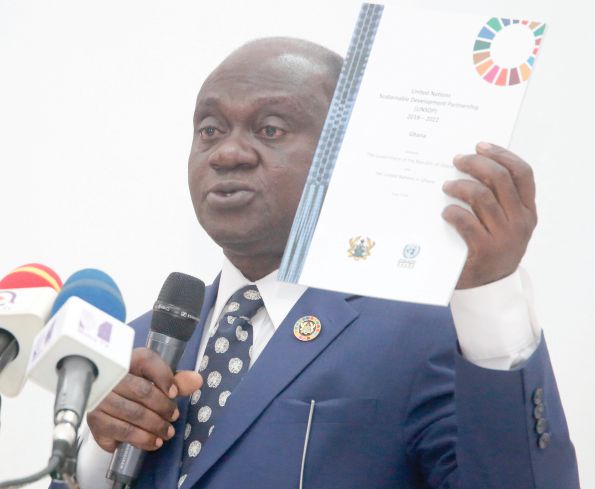
UN supports Ghana with $441.6m to tackle development challenges
The United Nations (UN) is providing a $441.5-million funding support for Ghana to tackle development challenges in education, health, agriculture, sanitation and other key areas to improve the livelihood of the people.
The document for the agreement, which was signed in June this year, was launched in Accra yesterday.
It was launched on the theme: “Making the UN relevant to all people: Global leadership and shared responsibility for peaceful, equitable and sustainable societies”.
Dubbed: the UN Sustainable Development Partnership (
Advertisement
The partnership framework, also set out in the
In particular, the
Launch
Launching the document, the Minister of Planning, Professor George Gyan-Baffour, explained that the
“The government has the responsibility of achieving the SDGs through national development strategies, enlisting the support of civil society, the private sector and the development partners. The UN programme for Ghana clearly meets that criteria, with its four results areas directly targeting policy areas articulated in the CPESDP,” he said.
He said the strategic partnership with the UN would help transform the agricultural sector, revamp social institutions, improve delivery by government institutions and also empower the youth as a prerequisite for achieving the SDGs.
Prof. Gyan-Baffour observed that although the country made good progress in achieving SDG One on reducing poverty and hunger by half, more work remained to be done to achieve the remaining 16 SDGs.
He said it was in that regard that the government found the partnership with the UN agencies a timely move.
Addressing challenges
For her part, Mrs Evans-Klock said it was important for all actors in the partnership to be committed to the initiative and play their parts well to address development challenges that would help achieve the SDGs.
She said the UN would support the country to step up efforts to tackle the sanitation challenge to protect the environment from degradation.
Mrs Evans-Klock said the persistent inequalities and growing polarisation between the rural and the urban areas, as well as the rich and the poor, would have to be addressed through decentralised policies and specific targeting of development initiatives.
